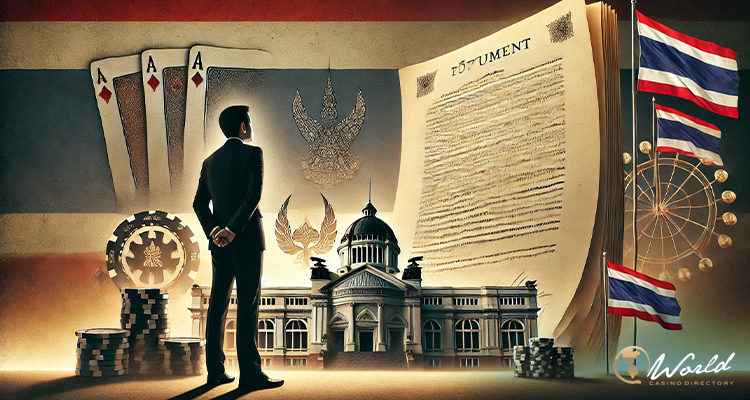Thailand’s push to introduce an Entertainment Complex Bill — legislation that would legalize casino resorts — has been temporarily put on hold, Prime Minister Paetongtarn Shinawatra confirmed this week. The decision follows mounting political and public opposition, with the premier stating that the government is taking a cautious approach to avoid further societal rifts.
“We aren’t in a hurry,” said Prime Minister Paetongtarn, explaining that Tuesday’s scheduled meeting among coalition party leaders was canceled due to the need for more thorough consideration. The session, intended to determine the optimal timing for reviewing the bill, was arranged during a routine cabinet meeting and could not proceed due to short notice.
While the bill was initially accepted for deliberation and considered urgent by the cabinet, its reading in the lower house was postponed. House Speaker Wan Muhamad Noor Matha acknowledged that although it appears on the legislative docket, 14 other bills are currently queued ahead of it. He suggested that the earliest possible date for discussion would be Wednesday — a day before the current parliamentary session ends.
Mounting Resistance from Civil Groups and Political Circles
Public resistance has grown more visible in recent weeks. Led by former red-shirt figure Jatuporn Prompan, demonstrators marched from Government House to Parliament, delivering a petition signed by 112,498 individuals opposing the bill. Critics argue the law could escalate gambling addiction, criminal activities, and social unrest, particularly if passed without adequate public consultation.
Meanwhile, 189 former senators voiced their disapproval in a joint letter, claiming the initiative is not part of the ruling coalition’s formal policy platform. A separate letter from 30 individuals who helped draft the 2007 Thai constitution warned that the bill may contravene sections of both the constitution and national strategy laws. They expressed concerns over ethical implications, potential misuse of public land, and the absence of safeguards against addiction.
Adding to the friction, a group of senators has pledged to silently protest by entering the legislative chamber with their arms crossed should the bill be debated.
Economic Prospects vs. Ethical Questions
Despite opposition, advocates of the bill point to its potential economic benefits for Thailand. Deputy Prime Minister Phumtham Wechayachai described the legislation as an essential countermeasure to counterbalance rising tariffs imposed by the U.S. on Thai exports.
The bill proposes the creation of large-scale entertainment zones, with casinos comprising no more than 10% of the total area. Provisions include a THB50 million deposit requirement for Thai nationals wishing to enter casino areas. Additional permitted operations in these zones would include hotels, exhibition centers, and major tourist attractions — one of which has been floated as a Universal Pictures-backed “Jurassic World: The Experience.”
Each licensed resort would require an investment of at least THB100 billion and would be operated by Thai-registered public or limited companies with a paid-up capital of no less than THB10 billion.
Still, the government has acknowledged that national emergencies, such as the aftermath of a recent earthquake and economic disruptions from new international tariffs, must take precedence. “We had better focus more on accuracy and appropriateness to prevent more conflicts from happening,” said the Prime Minister.
Internal Tensions Within the Coalition
The controversy has also sparked speculation about internal pressure from influential figures. Reports from the Bangkok Post suggested that former Prime Minister Thaksin Shinawatra, father of the current premier and founder of the ruling Pheu Thai Party, allegedly urged coalition members to support the bill or face expulsion. However, Pheu Thai secretary-general Sorawong Thienthong flatly denied these claims. “These claims are false, but we cannot control what people choose to believe,” he stated.
Despite internal party support for the bill, coalition partners such as the Bhumjaithai Party and the United Thai Nation Party have either advised caution or outright opposed the legislation. Bhumjaithai Party’s secretary-general Chaichanok Chidchob noted that the Prime Minister agreed the government should instead concentrate on post-earthquake recovery.
Future of the Bill Remains Uncertain
While the Prime Minister emphasized that the bill is merely delayed, not discarded, she has assured the public and political stakeholders that its reintroduction will not be rushed. The government plans to re-table the draft during the next legislative session, allowing time for comprehensive deliberation and public input.
House Speaker Wan Muhamad reiterated that once debate begins, parliamentarians should be able to deliberate without external pressure. Protesters, he said, will be permitted to demonstrate peacefully under police supervision. When asked about the possibility of a public referendum, he declined to comment.



